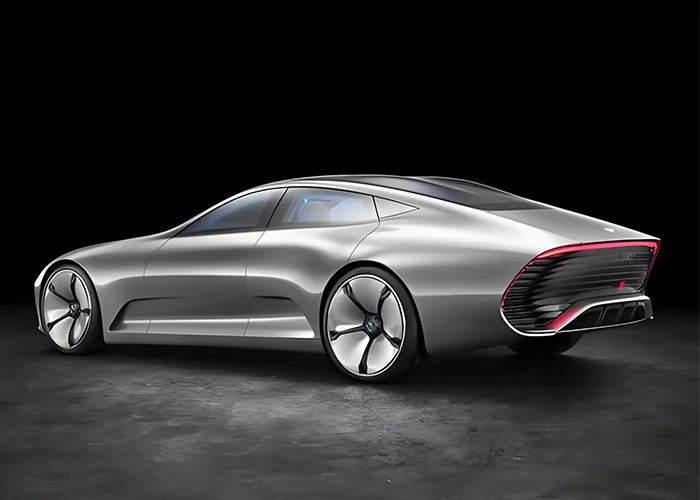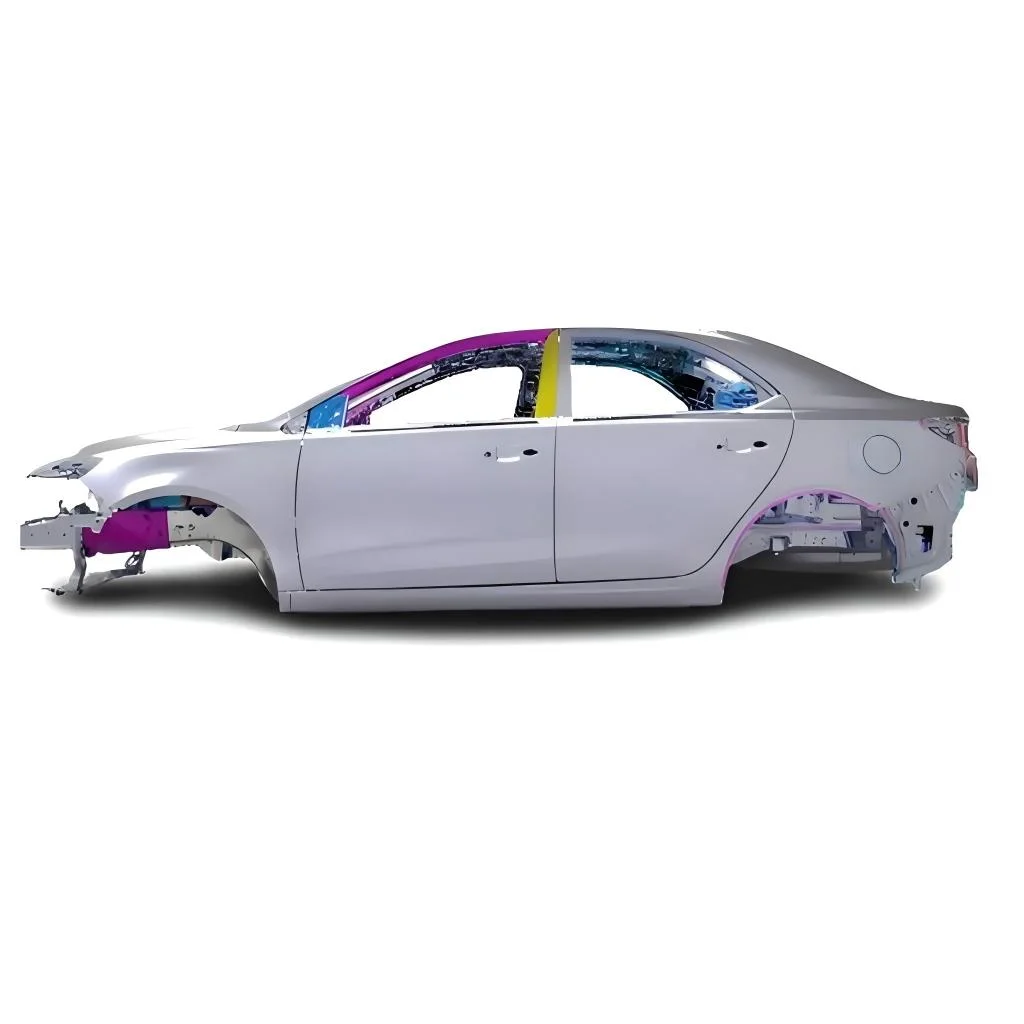The automotive aftermarket is seeing a big increase in demand for personalized auto body panel parts. People want to show their unique style. Urban trends and the growth of electric vehicles (EVs) also drive this change. Customization is not just about looks. It offers practical benefits like lighter materials and better airflow while following safety rules. Companies like Tairui use smart tools (CAD/CAM, AI, digital twins) and flexible production to make custom parts affordable, even in small batches. This trend creates new possibilities for passenger cars (showing personal style) and commercial fleets (keeping brand identity). Fast supply chains and teamwork with manufacturers are key to meeting market needs in 2025.
How Are Market Shifts Driving Demand for Personalized Auto Body Panel Parts?
Data to Insert: The global automotive aftermarket industry was valued at USD 430.51 billion in 2024 and is projected to grow to USD 565.73 billion by 2032, with a CAGR of 3.6% from 2025 to 2032.
What Trends Are Fueling the Surge in Customization?
Personalization is not just for fancy cars anymore. City drivers, young people, and fleet managers all want vehicles that stand out. They seek custom panels to show their style or brand. The rise of EVs and shared mobility platforms has made modular designs popular. Replaceable exterior parts are now a big part of personalization strategies.
Data to Insert: In 2024, North American consumers showed a strong preference for vehicle personalization, driving demand for aftermarket accessories, with the U.S. holding 86% of the North American car body kit market share. Additionally, global EV sales grew by 25% in Q1 2024, with over 3 million electric cars sold.
How Do Consumer Preferences Shape Product Development?
Today’s drivers want more than just speed. They want cars that look cool, match their identity, and feel special. If a car gets scratched or damaged in an accident, the door’s outer panel may need replacing. This creates a need in the aftermarket. Manufacturers must offer many designs that fit the original car structure to meet these demands.
What Role Do Regulations and Technology Play in Panel Design?
Safety rules and the need for lighter vehicles shape panel design. New tools, like strong steel shaping and composite materials, help manufacturers meet safety standards while allowing creative designs. Auto body panel parts are made by stamping and welding. An “assembly” is a full part made by joining several stamped pieces through welding. These advances make it possible to create custom panels that are safe and strong.
Why Is Personalization Strategic in Auto Body Panel Design?
Customization is more than just looks. It’s a smart way to stand out in a crowded market.
How Does Exterior Customization Elevate Brand Identity?
Whether you’re a carmaker or an aftermarket seller, custom auto body panel parts let customers show their style while boosting your brand. The door’s outer panel protects the inside structure and improves the car’s look. This mix of protection and style makes panels perfect for personalization that matches personal or company branding.
What Functional Benefits Do Tailored Panels Offer?
Custom panels do more than look good. They can improve airflow or include useful features like sensors or lights. Choosing lightweight materials, like special alloys, saves fuel while keeping strength. These panels shape the vehicle’s roof and protect the inside. Custom designs make these benefits even better for specific needs.
Data to Insert: The global lightweight automotive body panel market is projected to grow from USD 196.24 billion in 2024 to USD 310.39 billion by 2032, at a CAGR of 5.9%, driven by demand for fuel efficiency and EV range optimization.
Can Personalization Unlock New Market Segments?
Yes! From car fans who want unique looks to fleets needing consistent branding, personalized auto body panel parts open new markets. The aftermarket is strong in cities, where standing out visually is important.
What Sets Tairui Apart in This Competitive Landscape?
If you need a partner for both large-scale production and customization of auto body panel parts, Tairui is a top choice. With a capacity of over 400,000 sets per year and 85% welding automation (Source: Manufacturing Capabilities Page), Tairui balances high output with design flexibility.
What Core Products Are Offered Within Their Portfolio?
Tairui’s main products include:
- Front and Rear Bumper Panels– Built to absorb impact while offering stylish, customizable surfaces.
- Fender and Quarter Panels– Great for style upgrades while keeping airflow smooth.
- Door Skins and Hoods– Used in Pilot H2 and Pilot M5 models. During daily use, the door’s outer panel protects and decorates the vehicle.
Each product works well with original car designs but allows room for personalization.
How Does Their Manufacturing System Enable Customization?
Tairui uses CNC-based systems to shape parts precisely. This ensures custom designs stay strong and accurate. Adjustable molds allow small batch production without high costs. This makes mass personalization possible. Tairui also uses lightweight alloys and mixed materials that meet safety rules while offering unique finishes. These materials balance strength and style perfectly.
Which Technologies Make Mass Personalization Possible Today?
New digital tools are changing how custom parts are designed, tested, and made.
How Does CAD/CAM Streamline Design-to-Manufacturing Workflows?
CAD/CAM systems let manufacturers quickly design new panels based on customer ideas or market trends. They connect design to production smoothly. This cuts down wait times and ensures parts are made accurately.
Can AI Predict What Designs Will Be Popular Next Year?
Yes. AI studies data from online tools or sales to guess which styles will be popular. This helps manufacturers plan and adjust tools early, avoiding last-minute changes.
What Role Does Digital Twin Technology Play?
Digital twins create virtual models of parts before they’re made. This checks if they fit existing car designs. It’s important for aftermarket parts or small batches, where mistakes are expensive.
Where Will Demand Be Highest in 2025?
Two main areas will drive growth: passenger cars, focused on personal style, and commercial fleets, focused on branding.
What Drives Demand Among Passenger Vehicles?
City drivers see cars as part of their lifestyle. They want unique colors or textures for fenders and hoods to show who they are. Offering custom options through trusted suppliers creates big aftermarket opportunities, especially for younger buyers.
Why Do Commercial Vehicles Need Personalized Panels Too?
Fleet managers want vehicles to look the same, but also need parts suited for tough conditions. Custom quarter panels might have stronger edges. Bumpers could include logos or reflective strips. These features help both function and branding.
How Should Supply Chains Adapt for Personalized Parts Production?
To meet growing demand without raising costs or risks, supply chains must become more flexible.
Why Are Flexible Manufacturing Systems Essential Now?
Old-style mass production doesn’t work for custom orders. Flexible manufacturing systems (FMS) let factories switch between different panel types quickly. This supports varied products tailored to regions or customers.
How Does Just-in-Time Delivery Work With Customized Components?
Just-in-time delivery, paired with online ordering, ensures custom parts are made and delivered fast. This reduces the need for big warehouses and helps cash flow for sellers handling custom auto body panel parts.
What Should OEMs & Distributors Do Next?
To stay ahead as customers demand personalized vehicles, here’s what to do:
Should You Co-Develop With Specialized Manufacturers Like Tairui?
Yes. Working with experts like Tairui lets you use their production skills while creating products under your brand. This speeds up launches of special editions or regional designs without high costs, thanks to shared tools.
Can White-Label Solutions Expand Your Reach Without Adding Complexity?
Definitely. Distributors can use white-label parts based on existing molds but branded locally. This offers “custom” products without needing new tools or research.
FAQ
Q1: Are customized auto body panel parts structurally safe?
A: Yes. When made with certified processes like stamping and welding assemblies (joining multiple stamped pieces), they meet safety standards while allowing style flexibility.
Q2: Can small batch orders be economically viable?
A: Yes. Flexible manufacturing systems support small batches at scale. Adjustable molds cut retooling costs. This makes custom orders affordable without hurting profits.
Q3: Is there aftermarket demand beyond aesthetics?
A: For sure. If a car is damaged in an accident, there’s a need for replacement parts. Lighter materials, easier repairs, or added functions like sensors drive demand beyond just looks.


